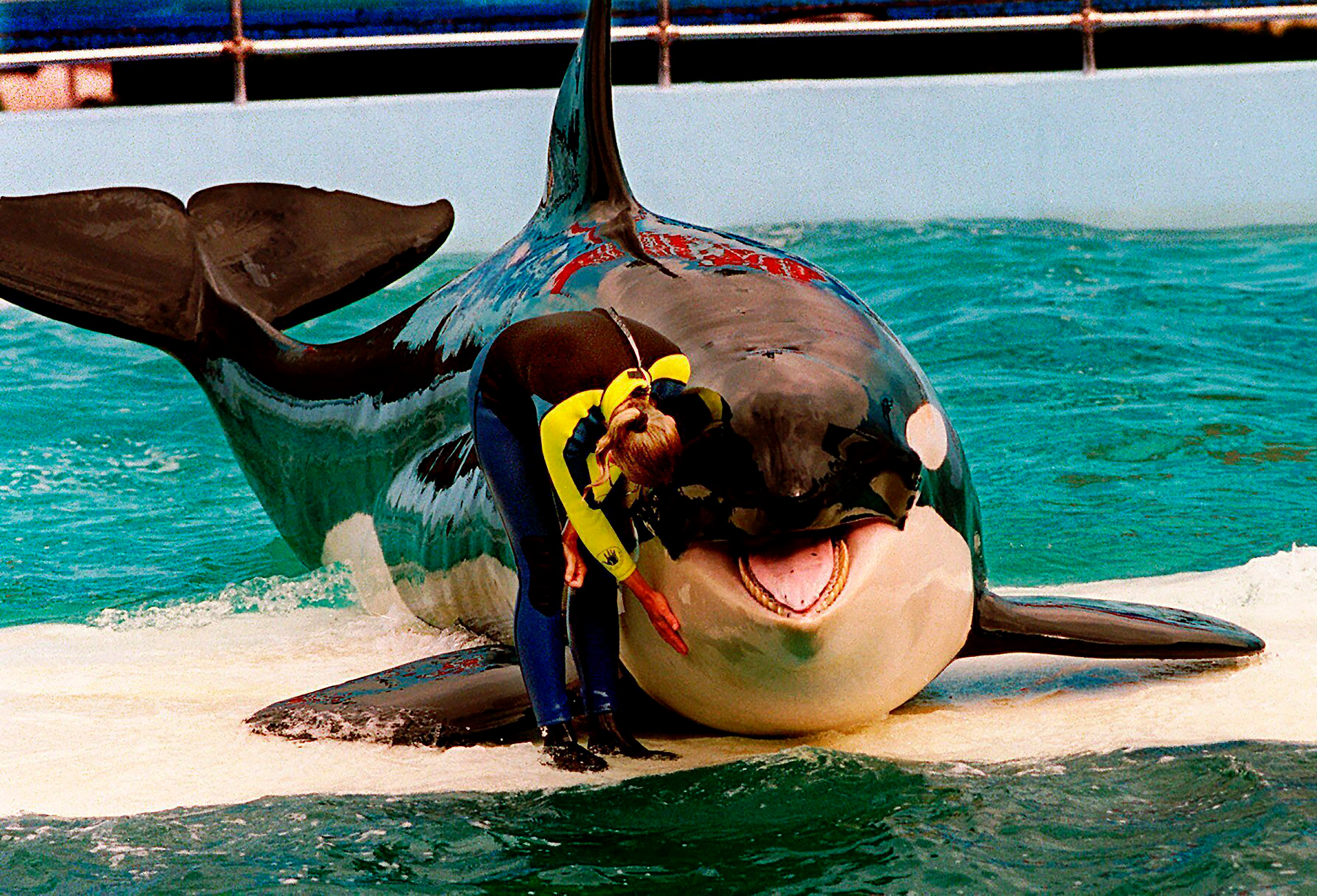Miami Seaquarium gets eviction notice several months after death of Lolita the orca
The Miami Seaquarium, which was home to the beloved orca Lolita, is being evicted from it's waterfront location in Miami

The Miami Seaquarium, an old-Florida style tourist attraction that was home to Lolita, the beloved Orca that died last year, is being evicted from the waterfront property it leases from Miami-Dade County.
Miami-Dade County Mayor Daniella Levine Cava cited a “long and troubling history of violations” in a lease termination notice sent Thursday to the chief executive officer of The Dolphin Company, which owns the Seaquarium. The company was told to vacate the property by April 21, according to the letter from the mayor's office.
The company did not respond to an email seeking comment from The Associated Press. Palace Entertainment, which owned the Seaquarium from 2014 to 2022 also did not respond to a voicemail seeking comment.
But Seaquarium officials sent a letter last month to Levine Cava, inviting her to visit the park so she could witness the animals’ wellbeing for herself. The county had advised the park in January that they were looking to terminate the park's lease following a review from the U.S. Department of Agriculture, which regulates the treatment and care of captive animals.
Eduardo Albor, CEO of The Dolphin Company, said in a Feb. 29 post on X, the social media platform formerly known as Twitter, that it was “a shame” to see the mayor ignore the request. “We stand with our great staff and support them,” Albor wrote.
Levine Cava said during a Thursday afternoon news conference that representatives of the county's parks department have made regular visits to the park over the past year and a half.
“The current state of the Miami Seaquarium is unsustainable and unsafe," Levine Cava said.
The Seaquarium could still fight the eviction. A judge would need to declare the park in compliance with their lease.
“Our number one priority continues to be the safety and wellbeing of the animals,” Levine Cava said.
The action follows a series of federal inspections that found multiple problems at the Seaquarium, including unsafe and structurally deficient buildings.
The Dolphin Company, based in Mexico, had agreed to help move Lolita to a natural sea pen in the Pacific Northwest when it took over ownership of the Seaquarium in 2022. Lolita, also known as Tokitae, or Toki, died Aug. 18, at age 57.
Animal rights activists had sought Lolita's freedom for years. The orca spent much of her life in tank a that measures 80 feet by 35 feet (24 meters by 11 meters) and is 20 feet (6 meters) deep, and stopped performing in shows at the Seaquarium in 2022.
A coalition that included Indianapolis Colts owner Jim Irsay worked on the plan to move Lolita back to the Pacific Northwest.
A necropsy cited kidney failure as the cause of Lolita's death. The necropsy also found Lolita suffered from acute and chronic bronchointerstitial pneumonia and renal degeneration, as well a chronic condition of the heart implying the degeneration of the cardiac valves.
“At long last, authorities are taking action against the persistent animal welfare violations at Miami Seaquarium,” said Dr. Naomi Rose, senior scientist in marine mammal biology for the Animal Welfare Institute’s Marine Life Program. “This run-down facility has been a blight on Miami for too long. We hope the zoo and aquarium community steps up to the plate to ensure all of the animals — the mammals, birds, fish — find acceptable homes in U.S. facilities.”
The Seaquarium opened in 1955 overlooking Biscayne Bay and was among the first theme parks devoted to marine life. It garnered international attention in the 1960s when the television series “Flipper” was filmed there.
___
Frisaro reported from Fort Lauderdale, Florida.
Bookmark popover
Removed from bookmarks